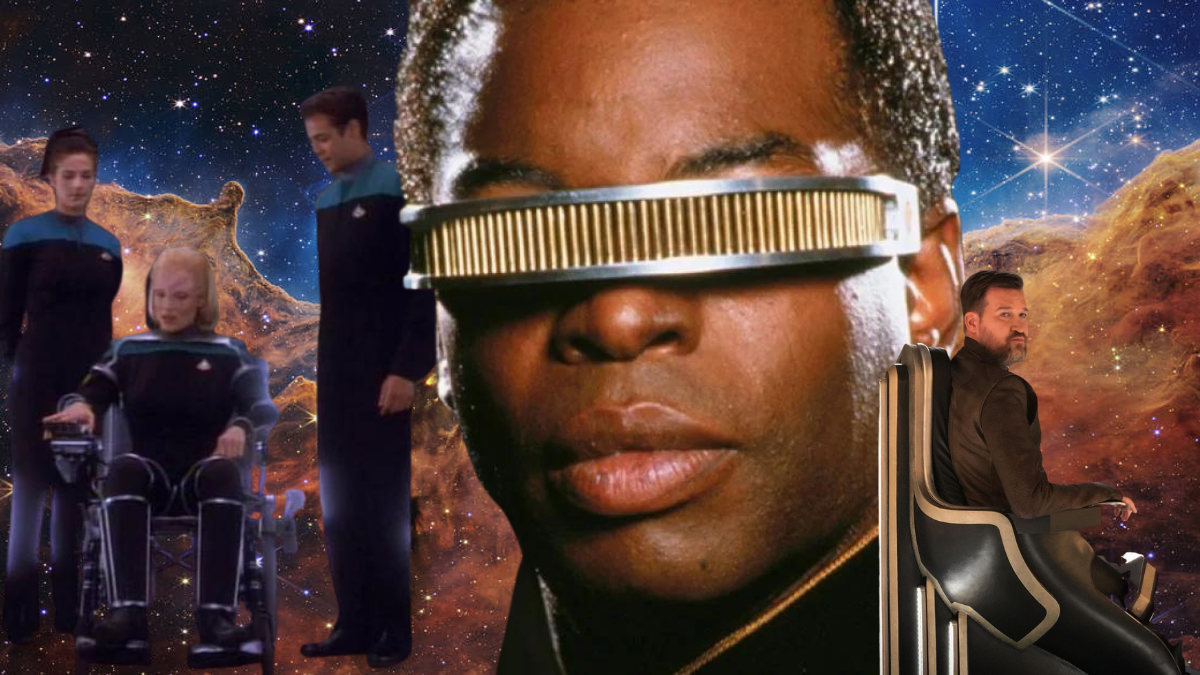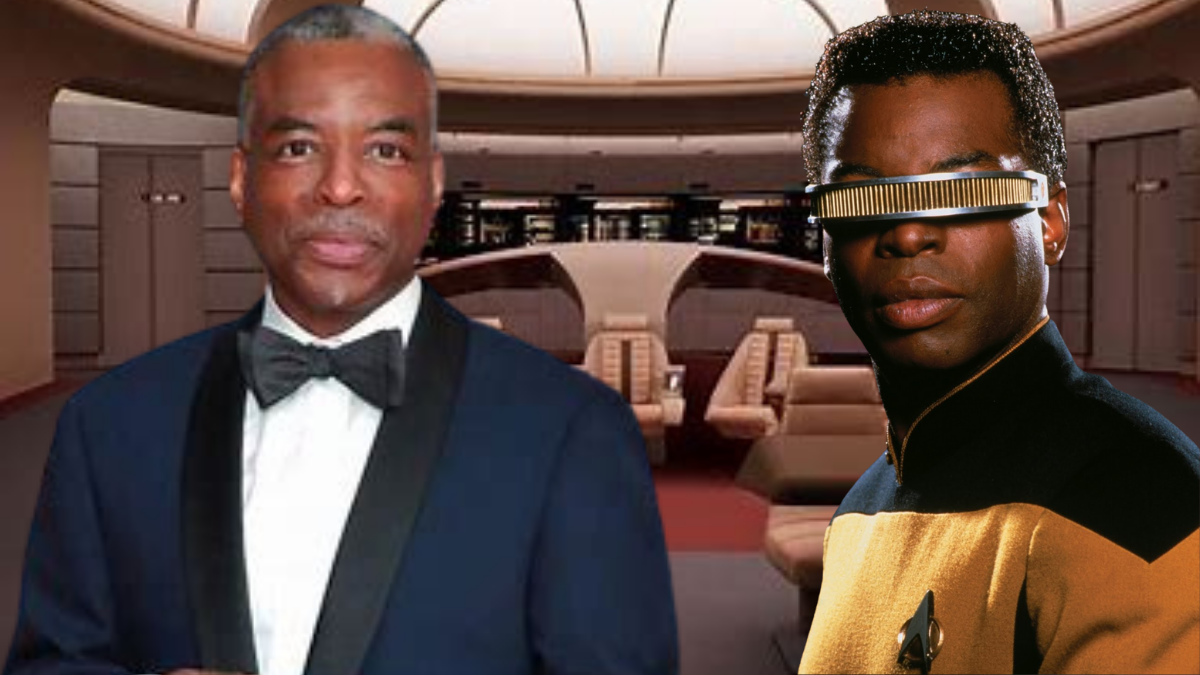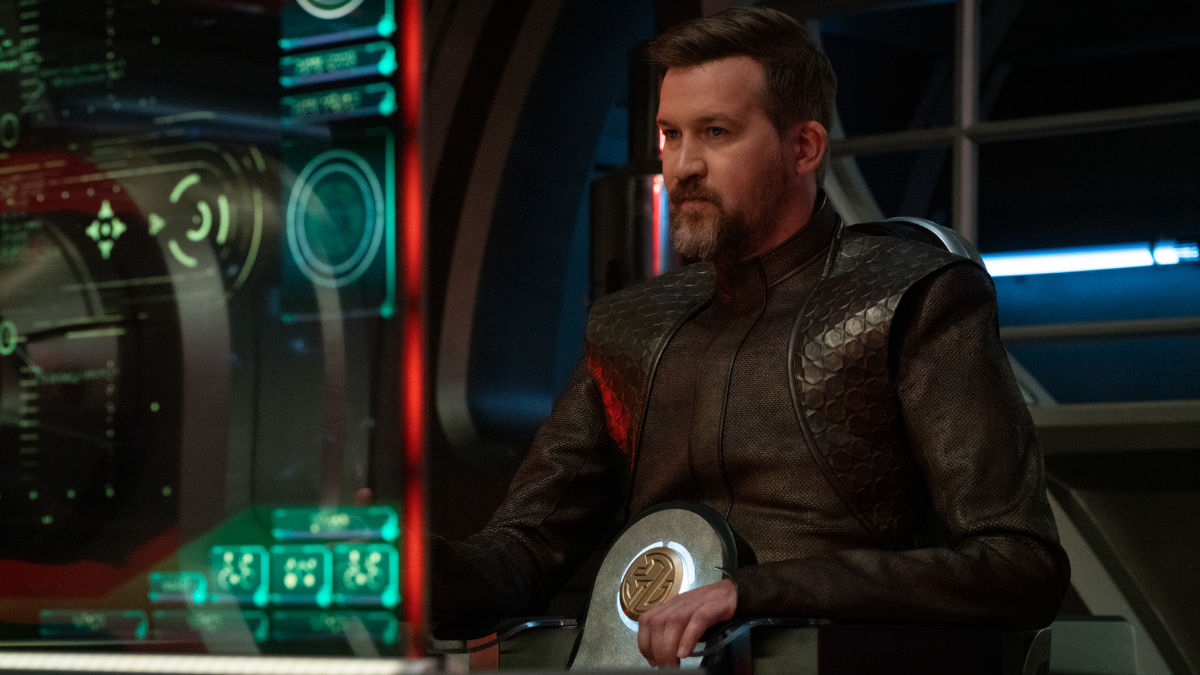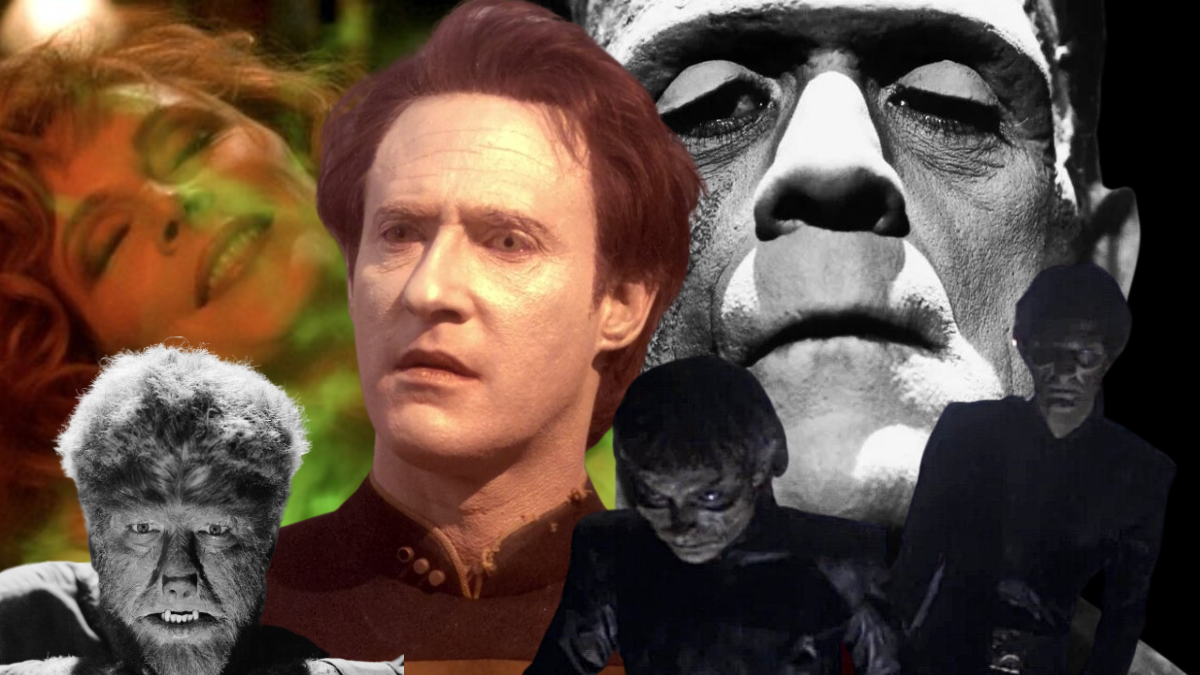Celebrate Disability Pride Month By Looking Back At Some Iconic 'Star Trek' Characters

July is Disability Pride Month. Images: NASA / Paramount.
JULY 18, 2023 - Disability Pride Month is celebrated every July and is an opportunity to honor the history, achievements, experiences, and struggles of disabled people. July marks the anniversy of the Americans with Disabilities Act which was a landmark piece of legislation passed on July 26th, 1990 which prohibits discrimination against people with disabilities. Here at Daily Star Trek News, we wanted to celebrate Disability Pride Month by honoring the many disabled characters seen throughout Star Trek.
The most obvious and well-known example of a disabled character in Star Trek is Geordi LeForge (LeVar Burton), the beloved blind engineer we see throughout the run of Star Trek: The Next Generation. Geordi achieves the rank of Lieutenant Commander, is considered an excellent pilot, and is promoted to Chief Engineer aboard the flagship of the Federation, all while being blind, showing any disabled Star Trek fan that they can succeed too.
Geordi wears a visor that enhances his sight beyond that of a normal human, however also causes him immense pain. In season 2, episode 5 of TNG, “Loud As A Whisper,” Dr. Pulaski (Diana Muldaur) gives Geordi the option to cure his blindness by giving him “normal eyes” and therefore ending the pain caused by his visor. He chooses not to take the option, echoing the sentiment he expressed early in the episode to Riva, the deaf diplomat visiting the ship (played by deaf actor Howie Seago) when he asked if Geordi resented his disability. He said that the visor and his blindness were “both a part of [him] and there’s no reason for [him] to resent either one.” Riva tells Geordi, “It’s a blessing to understand that we are special, each in his own way.” They take pride in their differences, something not common or accepted in 1992. It presented a new and progressive point of view about citizens, of both the Federation and Earth, who have disabilities: it’s ok and encouraged for disabled people to love themselves and their life.
In Star Trek: Deep Space Nine season 2 episode 6, “Melora,” we meet Ensign Melora Pazlar (Daphne Ashbrook), the new cartographer assigned to DS9. She is an Elaysian and the first of her kind to join Starfleet. The Elaysian home world is a low-gravity planet where the citizens effectively fly around. Elaysians’ motor cortex and muscles aren’t adapted to deal with high gravity environments so when Melora joins Starfleet, she has to use a wheelchair.
Melora expresses resentment that she must rely on others to get around, refusing to be anybody’s inspiration porn. Dr. Bashir offers to help strengthen Melora’s muscles and motor cortex, however, while undergoing this treatment she would be unable to return to her homeworld. Melora decides that if she went through with the treatment she wouldn’t be Elaysian anymore and instead she chooses to remain how she is and learn to accept assistance when it is needed.
Melora was actually written by a disabled person, Evan Carlos Somers, who worked on 3 DS9 episodes and one Star Trek: Voyager episode. As Somers himself uses a wheelchair, the character was very important to him, with his experiences of working in the narrow studio offices contributing to Melora’s personality.
Finally, there’s Kenneth Mitchell, an actor who appears in many Star Trek series and has been diagnosed with ALS. Mitchell played the Klingons Kol, Kol-Sha, and Tenavik, as well as Aurellio, in Star Trek: Discovery. He also performed voices in Star Trek: Lower Decks. He revealed his diagnosis in early 2020 and in an interview with StarTrek.com he revealed that the first person he told about his diagnosis was his Discovery co-star Mary Chieffo, who played L’Rell. After revealing his diagnosis to the Discovery cast and crew with Mary’s help, Aurellio was written as a hoverchair user, so that Mitchell could stay on the show and incorporate his wheelchair use.
Star Trek is by no means perfect. It has a history of casting able-bodied individuals to play disabled characters, (a trend broken by Kenneth Mitchell and one that I hope will stay broken) and with some more problematic portrayals of disabilities (i.e. TNG 5x16 “Ethics”). However, despite all that, I thought it was important to highlight some of the good portrayals of disability seen throughout Star Trek, in honor of this Disability Pride Month.
If you want to learn more about Disability Pride Month and how to celebrate visit GoodGoodGood.
Happy Disability Pride Month!
Aster is a fresh face to Daily Star Trek News, joining the ranks as a contributing writer. Though he may be young, he self-describes as a hardcore nerd, lover of cheese sticks and niche internet discourse. Outside of his long-time obsession with Star Trek, Aster is an avid cosplayer, crocheter, and Catan enthusiast who is attending school for technical theater and design. He's very excited to debut in his "professional nerd career" and finally put all his obscure nerd facts to good use.





